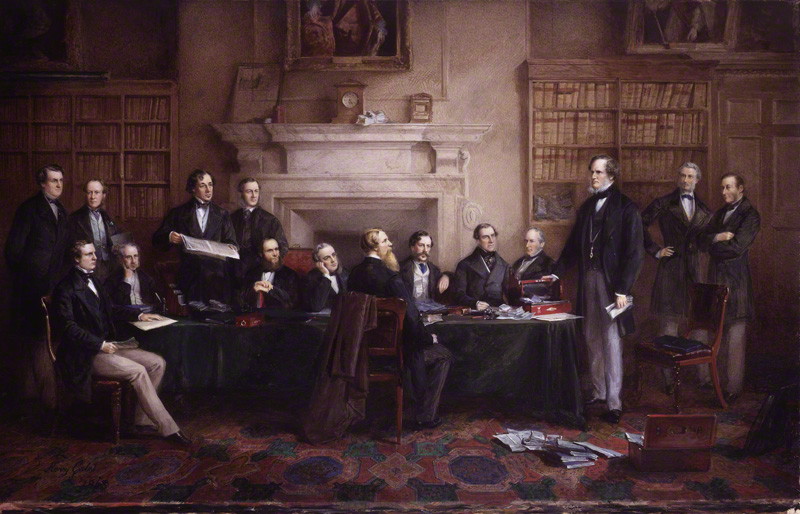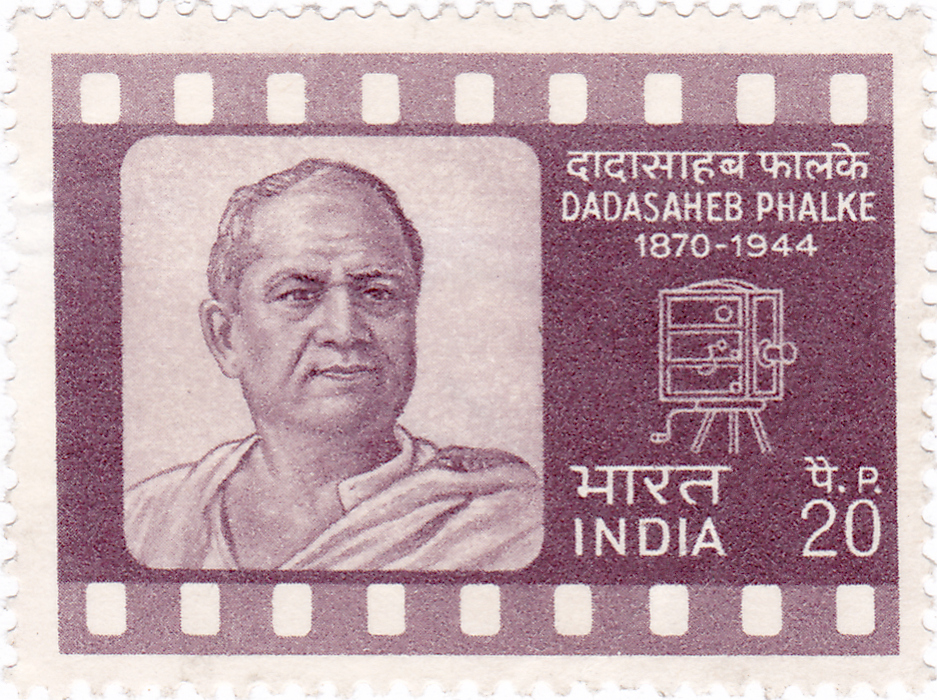|
1870 In India
Events in the year 1870 in India. Incumbents *Richard Bourke, 6th Earl of Mayo, Viceroy Events *National income - ₹3,332 million * The first submarine telegraph cable from UK landed in Bombay. * The United Service Institution (USI) was founded * Indian Reform Association was formed on 29 October with Keshab Chandra Sen as president. It represented the secular side of the Brahmo Samaj and included many who did not belong to the Brahmo Samaj. The objective was to put into practice some of the ideas Sen was exposed to during his visit to Great Britain. Law *Court-Fees Act *Coinage Act (British statute) *Extradition Act (British statute) *Foreign Enlistment Act (British statute) Births 30 April 1870 -- Dhundiraj Govind Phalke, known as Dadasaheb Phalke, the Father of Indian Cenema (Died 16 February 1944) References External links United Service Institution India India, officially the Republic of India (Hindi: ), is a country in South Asia. It is the seven ... [...More Info...] [...Related Items...] OR: [Wikipedia] [Google] [Baidu] |
Richard Bourke, 6th Earl Of Mayo
Richard Southwell Bourke, 6th Earl of Mayo, (; ; 21 February 1822 – 8 February 1872) styled Lord Naas (; ) from 1842 to 1867 and Lord Mayo in India, was a British statesman and prominent member of the British Conservative Party who served as Chief Secretary for Ireland (1852, 1858–9, 1866–8) and Viceroy of India (1869–72). Background and education Mayo was born in Dublin, Ireland, the eldest son of Robert Bourke, 5th Earl of Mayo (the son of Hon. Richard Burke, Bishop of Waterford and Lismore), and his wife, Anne Charlotte, daughter of the Hon. John Jocelyn. His younger brother the Hon. Robert Bourke was also a successful politician. He was educated at Trinity College, Dublin. He and his brothers were accomplished horsemen and enjoyed fox hunting. Political career After travelling in Russia, Mayo was elected MP for Kildare (1847–52), Coleraine (1852–7) and Cockermouth (1857–68). He was thrice appointed Chief Secretary for Ireland – in 1852, 1858 an ... [...More Info...] [...Related Items...] OR: [Wikipedia] [Google] [Baidu] |
Telegraph
Telegraphy is the long-distance transmission of messages where the sender uses symbolic codes, known to the recipient, rather than a physical exchange of an object bearing the message. Thus flag semaphore is a method of telegraphy, whereas pigeon post is not. Ancient signalling systems, although sometimes quite extensive and sophisticated as in China, were generally not capable of transmitting arbitrary text messages. Possible messages were fixed and predetermined and such systems are thus not true telegraphs. The earliest true telegraph put into widespread use was the optical telegraph of Claude Chappe, invented in the late 18th century. The system was used extensively in France, and European nations occupied by France, during the Napoleonic era. The electric telegraph started to replace the optical telegraph in the mid-19th century. It was first taken up in Britain in the form of the Cooke and Wheatstone telegraph, initially used mostly as an aid to railway signalling. Th ... [...More Info...] [...Related Items...] OR: [Wikipedia] [Google] [Baidu] |
United Kingdom
The United Kingdom of Great Britain and Northern Ireland, commonly known as the United Kingdom (UK) or Britain, is a country in Europe, off the north-western coast of the continental mainland. It comprises England, Scotland, Wales and Northern Ireland. The United Kingdom includes the island of Great Britain, the north-eastern part of the island of Ireland, and many smaller islands within the British Isles. Northern Ireland shares a land border with the Republic of Ireland; otherwise, the United Kingdom is surrounded by the Atlantic Ocean, the North Sea, the English Channel, the Celtic Sea and the Irish Sea. The total area of the United Kingdom is , with an estimated 2020 population of more than 67 million people. The United Kingdom has evolved from a series of annexations, unions and separations of constituent countries over several hundred years. The Treaty of Union between the Kingdom of England (which included Wales, annexed in 1542) and the Kingdom of Scotland in 170 ... [...More Info...] [...Related Items...] OR: [Wikipedia] [Google] [Baidu] |
Bombay
Mumbai (, ; also known as Bombay — the official name until 1995) is the capital city of the Indian state of Maharashtra and the ''de facto'' financial centre of India. According to the United Nations, as of 2018, Mumbai is the second-most populous city in India after Delhi and the eighth-most populous city in the world with a population of roughly 20 million (2 crore). As per the Indian government population census of 2011, Mumbai was the most populous city in India with an estimated city proper population of 12.5 million (1.25 crore) living under the Brihanmumbai Municipal Corporation. Mumbai is the centre of the Mumbai Metropolitan Region, the sixth most populous metropolitan area in the world with a population of over 23 million (2.3 crore). Mumbai lies on the Konkan coast on the west coast of India and has a deep natural harbour. In 2008, Mumbai was named an alpha world city. It has the highest number of millionaires and billionaires among all cities i ... [...More Info...] [...Related Items...] OR: [Wikipedia] [Google] [Baidu] |
United Service Institution (USI)
United Service Institution of India (USI) is a national security and defence services think tank based in New Delhi, India. It describes its aim as the "furtherance of interest and knowledge in the art, science and literature of the defence services". USI operates centres for research in various areas of national security. The USI Journal, published quarterly since 1872, is the oldest defence journal in Asia. It also publishes a number of monographs based on research and study by its members. History The United Service Institution was established in 1870 by Major General Sir Charles MacGregor in Shimla. It was founded as a society in the ''furtherance of interest and knowledge in the art, science and literature of the Defence Services''. The institute was initially housed in the Old Town Hall, and later received temporary accommodation in the Indian Army Headquarters, which was also then based in Shimla. In 1908, the institute acquired its own premises near Combermere Post Off ... [...More Info...] [...Related Items...] OR: [Wikipedia] [Google] [Baidu] |
Dhundiraj Govind Phalke
Dhundiraj Govind Phalke (Pronunciation: ̪ʱuɳɖiɾaːd͡ʒ pʰaːɭke, popularly known as Dadasaheb Phalke () (30 April 1870 – 16 February 1944), was an Indian producer-director-screenwriter, known as "the Father of Indian cinema". His debut film, ''Raja Harishchandra'', was the first Indian movie released in 1913, and is now known as India's first full-length feature film. He made 95 feature-length films and 27 short films in his career, spanning 19 years, until 1937, including his most noted works: ''Mohini Bhasmasur'' (1913), ''Satyavan Savitri'' (1914), ''Lanka Dahan'' (1917), ''Shri Krishna Janma'' (1918) and ''Kaliya Mardan'' (1919). The Dadasaheb Phalke Award, awarded for lifetime contribution to cinema by the Government of India, is named in his honour. Early life and education Dhundiraj Phalke was born on 30 April 1870 at Trimbak, Bombay Presidency into a Marathi-speaking Chitpavan Brahmin family. His father, Govind Sadashiv Phalke alias Dajishastri, was a Sansk ... [...More Info...] [...Related Items...] OR: [Wikipedia] [Google] [Baidu] |
1870 In India
Events in the year 1870 in India. Incumbents *Richard Bourke, 6th Earl of Mayo, Viceroy Events *National income - ₹3,332 million * The first submarine telegraph cable from UK landed in Bombay. * The United Service Institution (USI) was founded * Indian Reform Association was formed on 29 October with Keshab Chandra Sen as president. It represented the secular side of the Brahmo Samaj and included many who did not belong to the Brahmo Samaj. The objective was to put into practice some of the ideas Sen was exposed to during his visit to Great Britain. Law *Court-Fees Act *Coinage Act (British statute) *Extradition Act (British statute) *Foreign Enlistment Act (British statute) Births 30 April 1870 -- Dhundiraj Govind Phalke, known as Dadasaheb Phalke, the Father of Indian Cenema (Died 16 February 1944) References External links United Service Institution India India, officially the Republic of India (Hindi: ), is a country in South Asia. It is the seven ... [...More Info...] [...Related Items...] OR: [Wikipedia] [Google] [Baidu] |
1870 By Country
Year 187 ( CLXXXVII) was a common year starting on Sunday (link will display the full calendar) of the Julian calendar. At the time, it was known as the Year of the Consulship of Quintius and Aelianus (or, less frequently, year 940 ''Ab urbe condita''). The denomination 187 for this year has been used since the early medieval period, when the Anno Domini calendar era became the prevalent method in Europe for naming years. Events By place Roman Empire * Septimius Severus marries Julia Domna (age 17), a Syrian princess, at Lugdunum (modern-day Lyon). She is the youngest daughter of high-priest Julius Bassianus – a descendant of the Royal House of Emesa. Her elder sister is Julia Maesa. * Clodius Albinus defeats the Chatti, a highly organized German tribe that controlled the area that includes the Black Forest. By topic Religion * Olympianus succeeds Pertinax as bishop of Byzantium (until 198). Births * Cao Pi, Chinese emperor of the Cao Wei state (d. 226) * Gu ... [...More Info...] [...Related Items...] OR: [Wikipedia] [Google] [Baidu] |



